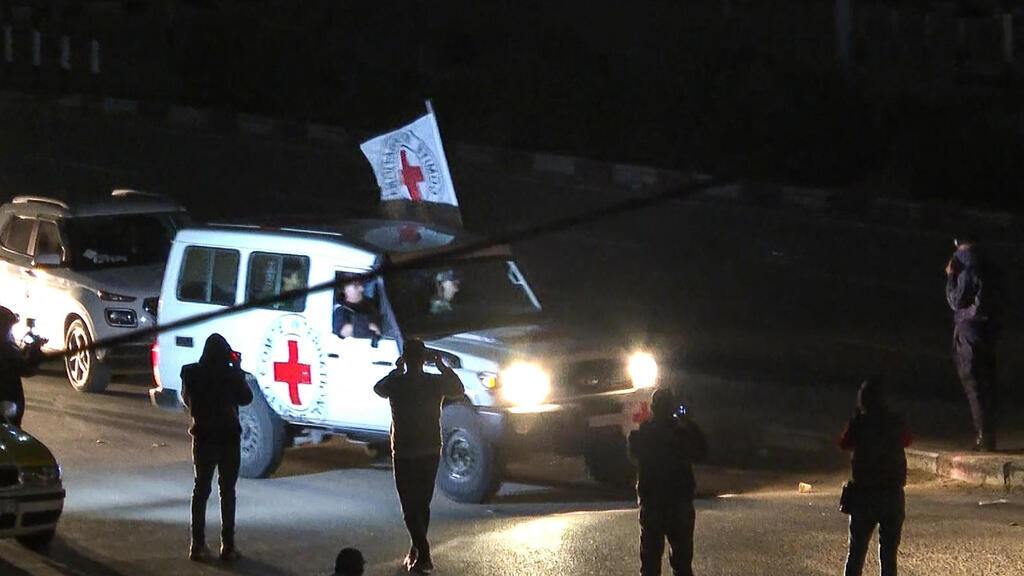Getting your Trinity Audio player ready...
The Health Ministry issued Thursday an update to the protocol for providing medical care to returning Israeli hostages, focusing on collecting forensic evidence related to war crimes.
Read more:
In the fields of sexual assaults, war crimes, and torture during the captives' period of captivity, hospitals have been instructed to hold team meetings to relearn guidelines regarding the treatment of acute injuries and their implications.
2 View gallery


Red Cross vehicles carrying Israeli hostages from Hamas captivity
(Photo: Belal Al Sabbagh/AFP)
The teams are directed to perform these tests after obtaining consent and the choice of the returning hostages. As part of the expanded medical treatment, a panel of tests for infectious diseases has been introduced.
Unlike the previous protocol, the new one places a much greater emphasis on substantial medical intervention, including a broader range of tests, guidance from geriatricians, dentists, ophthalmologists, and examinations to detect infections. Additionally, the medical team is involved in gathering forensic information required for documenting war crimes.
The updated protocol includes precise instructions and principles for treatment, focusing on medical aspects. The guidelines recommend allowing a term of at least four days of hospitalization in a designated facility, with the consent of the returning hostages.
This is done to facilitate comprehensive medical and psychological treatment and address other needs the hostages may have. Additionally, the protocol acknowledges the transition of treatment between hospitals and establishes a community-adapted medical response over time.
A social worker will accompany the captives’ treatment process as soon as possible and engage in a conversation with the captives and their family to gain an understanding of their mental distress. They will recommend additional psychological intervention by a psychiatrist or psychologist as needed.
Health Minister Uriel Buso, said, "Since the previous release deal, the ministry has conducted a thorough and professional examination of the process in order to make adjustments and streamline the treatment of returning hostages, enabling them to return to routine in the best way possible. The health system is prepared for the release of our captives and awaits their return."




